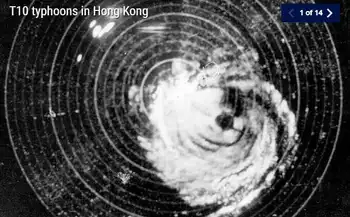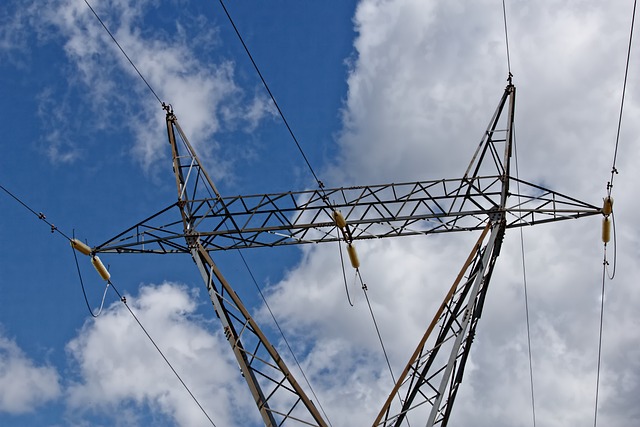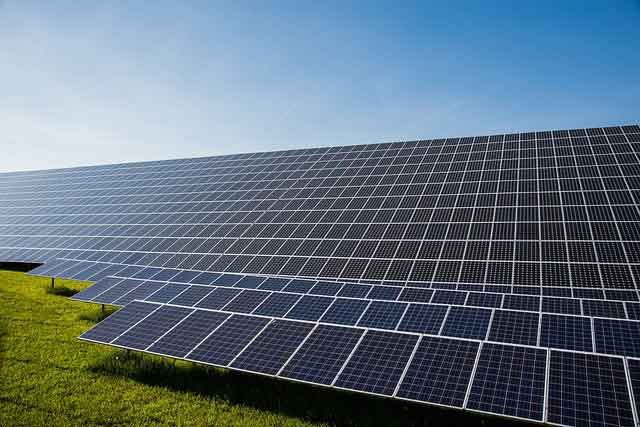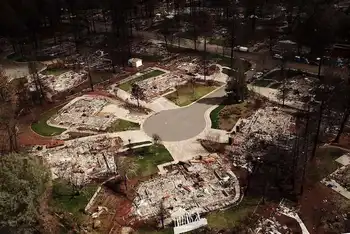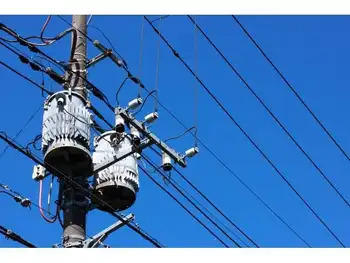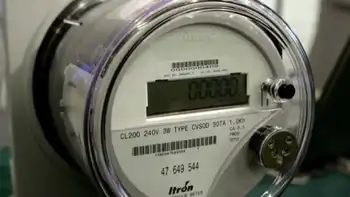France reaffirms faith in nuclear power
By International Herald Tribune
NFPA 70b Training - Electrical Maintenance
Our customized live online or in‑person group training can be delivered to your staff at your location.

- Live Online
- 12 hours Instructor-led
- Group Training Available
Here on the Normandy coast, France is building its newest nuclear reactor, the first in 10 years, costing $5.1 billion. But already, President Nicolas Sarkozy has announced that France will build another like it.
Flamanville is a vivid example of the French choice for nuclear power, made in the late 1950s by Charles de Gaulle, intensified during the oil shocks of the 1970s and maintained despite the nightmarish nuclear accidents of Three Mile Island and Chernobyl.
Nuclear power provides 77 percent of France's electricity, according to the government, and relatively few public doubts are expressed in a country with little coal, oil or natural gas.
With the wildly fluctuating cost of oil, anxiety over global warming from burning fossil fuels and new concerns about the impact of biofuels on the price of food for the poor, nuclear energy is getting a second look in countries like the United States and Britain. Even Germany, committed to phasing out nuclear power by 2021, is debating whether to change its mind.
France is way ahead. Électricité de France, or EDF, is in talks to buy British Energy, for about $24 billion, to renovate Britain's nuclear plants and build new ones. The French have already contracted to build a third-generation European Pressurized Reactor of the Flamanville type — the world's safest and most powerful — in Abu Dhabi and China.
There is pride in French exceptionalism and in the technical skill that has produced an industry with no major accidents. In a recent op-ed article in Le Figaro, for example, Yves Thréard boasted: "France hasn't any oil, but she knew how to exploit a rich idea. In the whirlwind of globalization, civil nuclear power became a weapon, commercial and political, that allowed the country to remain at the avant-garde in the concert of nations."
A senior aide to Jean-Louis Borloo, the minister of ecology, sustainable development and planning, said that France "sees a wide trend developing" toward more use of nuclear energy.
"A lot of countries realize that with the rising price of fossil fuels and energy, and the climate emergency, nuclear can be part of the solution," said the aide, who spoke anonymously under the rules of his ministry.
He said that France's choice for a "closed fuel cycle" — reprocessing used nuclear fuel to recover plutonium made in the reactors so it can be reused — was safer. "This way, nuclear energy can bring a lot — it's CO2-free energy."
Sarkozy said that each European Pressurized Reactor that "replaces a gas-powered electricity plant saves two billion cubic meters of gas each year, and each EPR replacing a coal plant means cutting 11 million tons of CO2."
France generates half of its own total energy, up from 23 percent in 1973, despite increased consumption.
Electrical power generation accounts for only 10 percent of France's greenhouse gases, compared with an average of 40 percent in other industrialized countries, according to EDF.
France has 58 operating nuclear reactors, the highest number of any nation besides the United States. In America, where nuclear construction has been moribund, there is also new interest. At the moment, 19.4 percent of the electricity generated in the United States is from 104 nuclear plants, according to the Department of Energy.
The Nuclear Regulatory Agency has in hand or expects applications to build 34 reactors, of which seven are European pressurized water reactors of the Flamanville type — and, unlike current American reactors, allow output to vary to meet fluctuating demand.
The Flamanville reactor is based on a French-German design, which itself is based on an earlier Westinghouse design. EDF has an American partner, Constellation Energy, to sell the new model as a joint venture called UniStar Nuclear, which has already ordered some of the larger parts for one reactor. Ironically, its main competitor is Westinghouse, now owned by Toshiba.
For all the happy talk in France, however, there are continuing doubts and confusion about nuclear power, accentuated by a series of accidents and alerts in July. At a nuclear plant in Tricastin, in Provence, 163 pounds of untreated uranium in liquid leaked from a faulty tank during a draining operation, seeping into the ground and then into rivers that flow into the Rhône.
While the two-year-old Authority for Nuclear Security, an independent body overseeing civilian nuclear activities, called it a category one (out of seven) incident that posed no health risk, the local prefect banned fishing, irrigation, swimming and the use of well water. The ban lasted 14 days, and the government criticized Areva, the nuclear group that is mostly state-owned, for not informing local authorities quickly or adequately. The treatment station, which was old, was being replaced, and remains shut.
Other minor accidents occurred in quick succession: a burst underground pipe at another site north of Tricastin, which leaked a tiny amount of uranium inside plant grounds, and then another accident at Tricastin itself, when 100 employees were contaminated by radioactive particles that escaped from a pipe.
The government, Areva and EDF have played down the accidents. Borloo said there were 86 category-one nuclear incidents in France in 2007 and 114 in 2006. Borloo's aide, pointing to the Authority for Nuclear Security, said the Tricastin "microevent" showed that "our system of security is extremely responsive and transparent, and that the media and public opinion needed a training period to understand how the system of nuclear security works in France."
Still, there is continuing nervousness. Sales of bottled water increased, and even a nearby appellation of local wine, Côteaux du Tricastin, is exploring whether to change its name, according to Henri Bour, who runs the local wine council.
A prominent French anti-nuclear lobby, Sortir du Nucléaire, is pressing to phase out nuclear power, which it considers too dangerous and too expensive because of the need to manage nuclear waste. The group wants a "sustainable transition" to renewable energy options like solar, hydro and wind power. Last year, on the 21st anniversary of the Chernobyl meltdown, 30 protesters at Flamanville blocked entrances and chained themselves to cranes.
There have also been some construction issues. In April, the Authority for Nuclear Safety criticized some of the welds and the quality of the concrete work at Flamanville, but work resumed in June. Philippe Leynié, the site manager here for EDF, said the problem involved missing pins on the metal rebar and was not serious.
Nonetheless, an IFOP opinion poll conducted for Le Monde after the Tricastin leaks showed that 67 percent of the French considered it vital to keep nuclear power in the country's energy mix, compared with 52 percent in 2002. Only 27 percent judged the risks of nuclear energy to be the most worrying, compared with 50 percent who thought global warming was the predominant risk. In 2002, 33 percent worried most about nuclear risks and only 20 percent about global warming.
For Flamanville, though, a village of 1,780 people, nuclear power has re-energized the town. There are no pretty beaches here, just granite cliffs above a cold sea. For hundreds of years, the village lived off the granite, cutting and selling it, shipping it first by boat, then by railroad. Flamanville granite, said Mayor Patrick Fauchon, was used to pave the Place de la Concorde in Paris.
But by the middle of the 19th century it became too expensive compared with other sources, and the village survived by digging iron from an undersea mine, said Fauchon, who has been mayor since 1983. "It was always a company town," he said.
But the mine closed in 1962, and the population of the village dropped to 1,150 people. When the idea of a nuclear plant arose, in 1975, there was considerable debate. But residents voted for the nuclear plant, which meant new jobs.
The granite cliffs and cold sea, while not hospitable to bathers, were ideal for these nuclear reactors, which need a hard foundation and access to plentiful cold water.
Now, after so many years, a generation of workers here has already retired from the nuclear industry.
"At the regional level, some towns accept having nuclear plants and others oil refineries," Fauchon said. "I don't ask Bretons if they're happy about having pigsties and raising pigs, which creates another source of pollution."
Still, he thinks these days of the effect on towns that are losing their regiments as France's military modernizes. "At least when we speak of energy, it's a permanent need," Fauchon said. "When we speak of an industrial tool with a lifespan of 60 years, we have economic activity for two generations."





